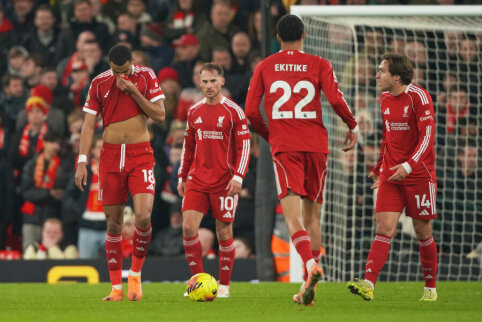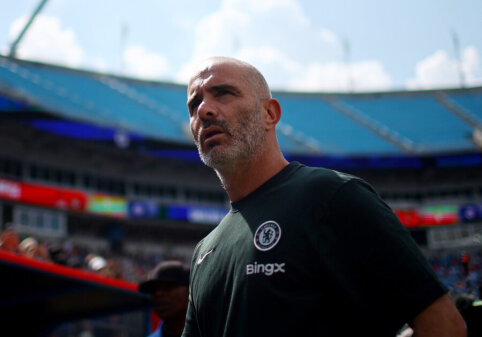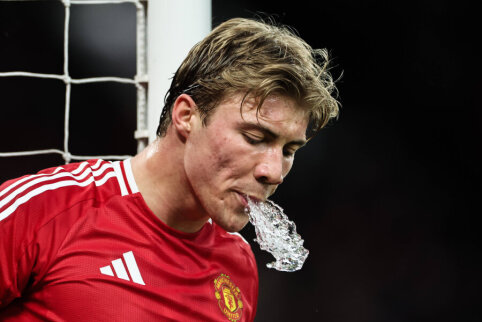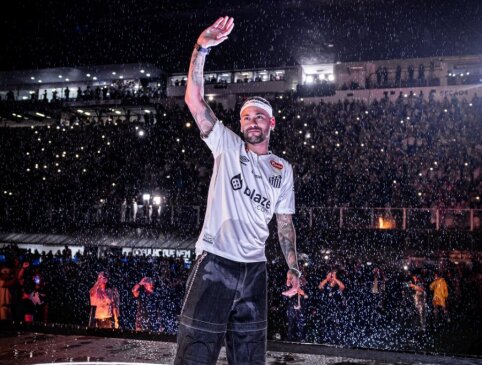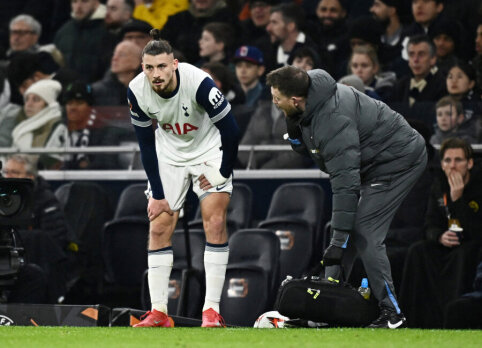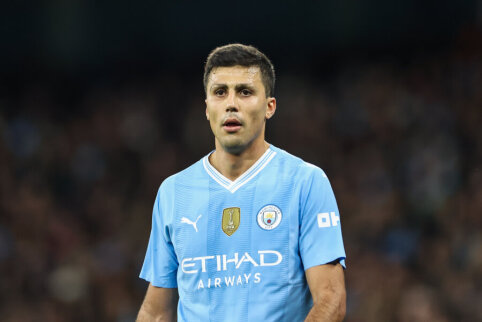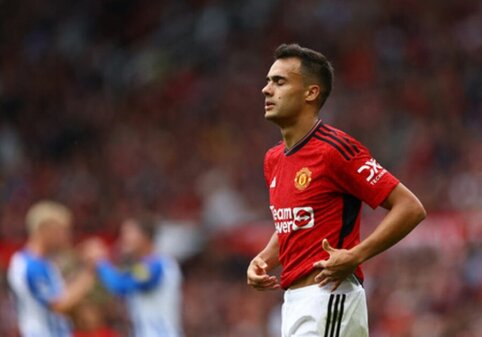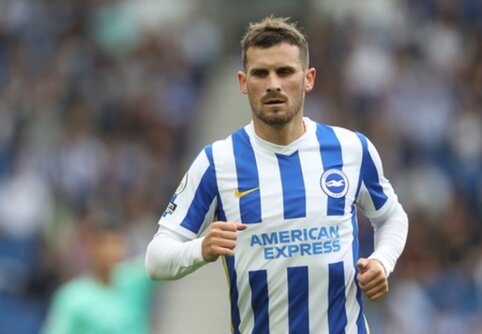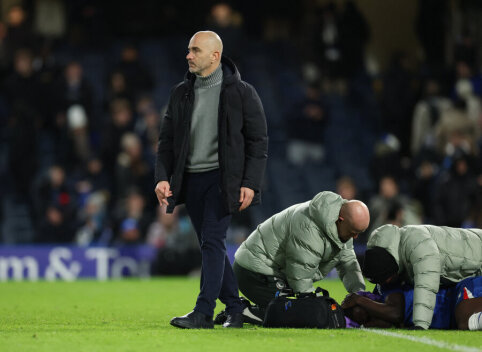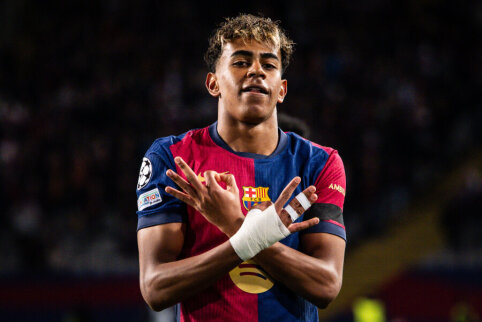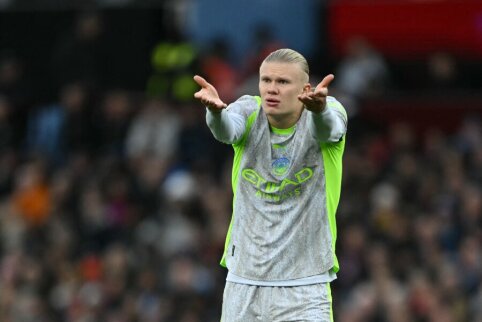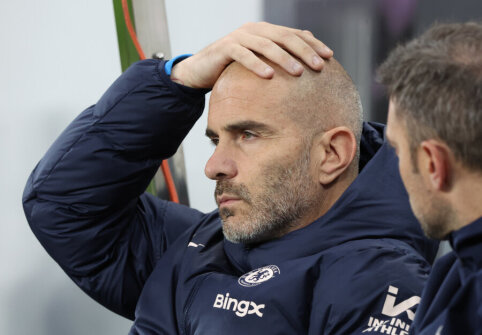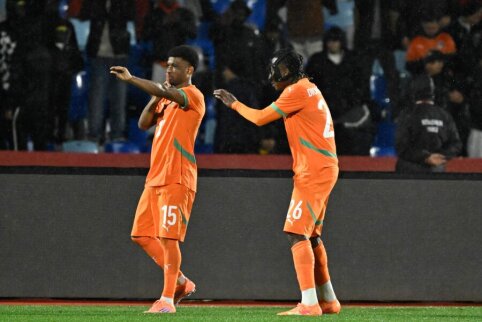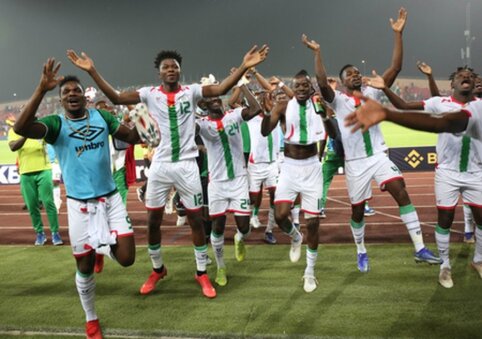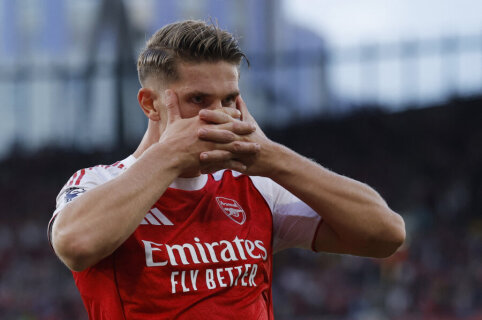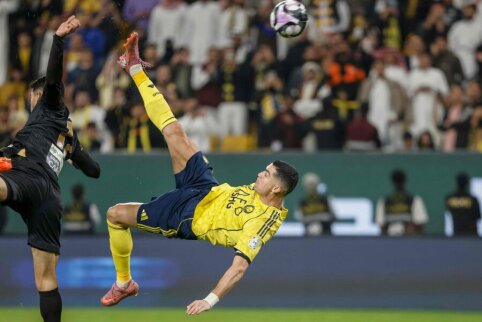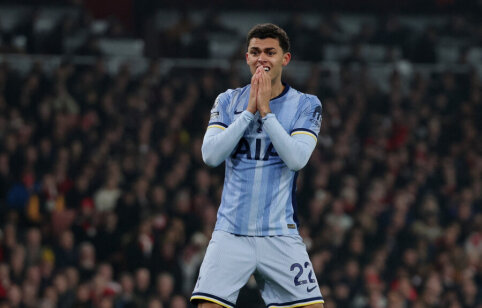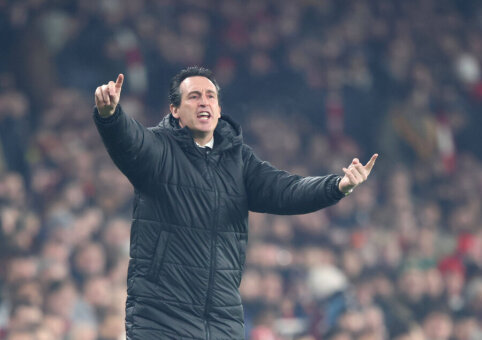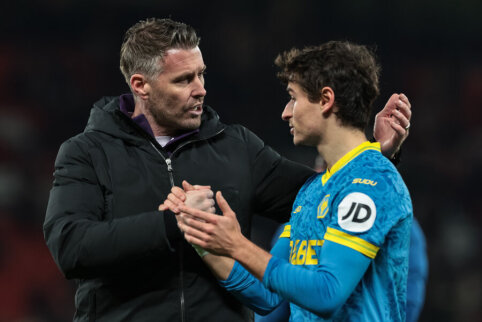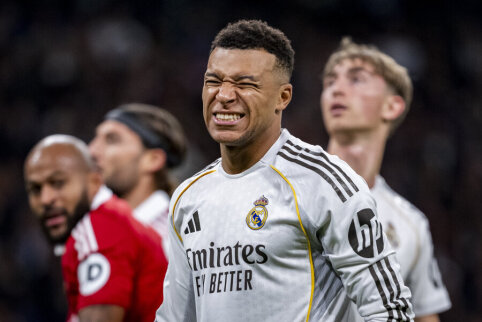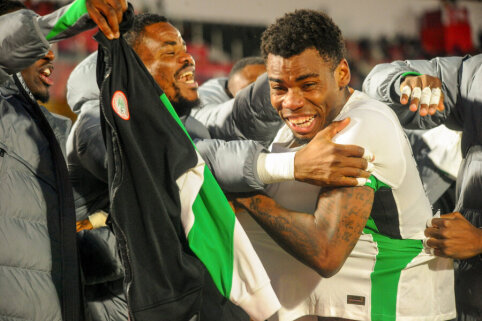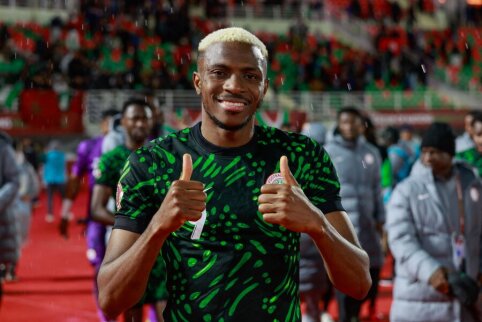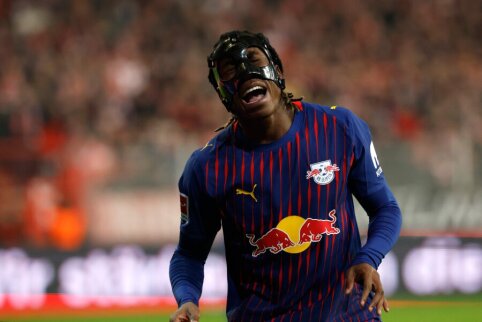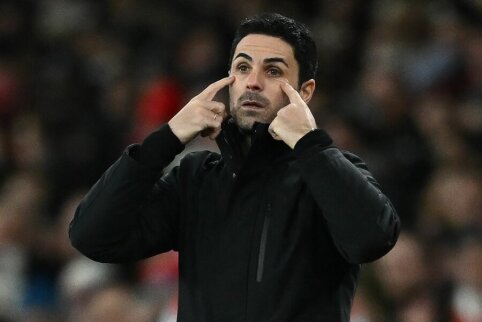 © EuroFootball.com
© EuroFootball.com
Some nostalgia
Probably every Birmingham team fan who remembers Martin O'Neill with nostalgia at this time. For those who don't know who he is and why he is special to "Aston Villa": He brought a team that sat in the middle of the table (more precisely, before his arrival in the 06/07 season, they were in 16th place) back to the European battle and for three seasons in a row they finished in the 6th place with the club. And it wasn't achieving dreams, but big disappointments fighting for the Champions League.
(The team, after losing to "Arsenal" 0-3 over Christmas 2009 and starting the end of the O'Neill era.)
O'Neill's team already had quite a few drawbacks. First of all, they had a very short bench and were often rotated, which is why the team comfortably settled in 3-4 place in the table in winter, but would eventually fall and finish lower. Secondly, very primitive tactics: allowing opponents to play first and counterattack with quick attacking players like Ashley Young or Gabriel Agbonlahor. Opponents would often find the antidote and not just outplay the club but completely undermine them. In March 2010, London's "Chelsea" hit 7-1 due to their 4th place battle with "Man City" and "Tottenham Hotspur".
However, there were also clear advantages. Martin O'Neill managed to capitalize on the speed of the mentioned players and, from the already slow, aging, and error-prone defenders, such as Carlos Cuellar or Richard Dunne, who previously seemed hopeless at the "Man City" club, he built a solid and disciplined defense that conceded only 39 goals (now this result would bring not one but many tears of joy to an Aston Villa fan). Players like John Carew, naturally very limited and slow, were turned into excellent target-men. It was O'Neill who discovered James Milner as a central midfielder, forming a strong duo in the middle of the pitch with Stiliyan Petrov.
(Tens of millions spent on these two youngsters brought no luck)
O'Neill's "Aston Villa" was probably the strongest of all "Villa" teams of the millennium. It should be noted, however, that this was due more to the owner Randy Lerner opening his wallet than to O'Neill's brilliant leadership. So it is understandable that there were also some not very successful purchases: £8.5 million for Nigel Reo-Coker, £10 for Curtis Davies, £5 for Steve Sidwell, and another £5 for Habib Beye (who played only 9 matches in two and a half years before his contract was terminated, having to search for a club in the third league). As for other unsuccessful purchases in the player market, the club saw the totally underrated Gary Cahill leave (it would have been really great to have him in the team now).
Be that as it may, whether we talk about disciplined defense, the Young-Downing flanks, or the Milner and Petrov controlled midfield (and let's not forget the tactical understanding of captain Gareth Barry in the center, who is now a club legend, but everything would have turned out quite differently (probably better) for Villa if not for the money that lured him to Manchester City) "Aston Villa" fans can now only dream.
A new era?
In August 2010, just a few days before the start of the season, Martin O'Neill resigned from his coaching duties due to disagreements with Lerner, likely because continuing to pursue the financially losing club vision no longer seemed worthwhile to the owner. This strengthened the feeling among the club's fans that a mass exodus of the club's stars might begin. The richest English clubs were buzzing around PFA's young player Milner (who was also acquired expensively, costing £12 million, which did not prevent his former club Newcastle from relegation) so it's no wonder that in the last days of the transfer window another important Aston Villa player followed in Barry's footsteps to the blue side of Manchester.
His replacement was supposed to be the midfielder Stephen Ireland, who even became the "Manchester City" player of the season in 2009 but later yielded his place in the lineup to multi-million dollar signings. He left his first club as a prima donna, criticizing former teammates and the club itself. It is important to note that Ireland was not a suitable replacement for Milner even tactically, as the Irishman playing in the number 10 role would not have found a place in O'Neill's schemes. And it was the only team allegedly aiming to fight for a Champions League spot that newcomer barren summer. While without Milner only second-rate players emerged, this stagnation really did not delight the team's fans and quickly reflected in the results.
While the reserves were led by coach Kevin McDonald, they had two wins from the first three matches at home (in the opening matches of the season, "West Ham" was crushed and in the third round they beat "Everton" 1-0), but also suffered a rather humiliating defeat when the re-promoted "Newcastle" laughed at them and allowed them to realize that they would need to seek a new strategist.
(Andy Carroll's £35 million performance)
On September 8, it was confirmed that the 63-year-old Gerard Houllier, then working for the French Football Federation and not coaching a football team for a long time, would take over the post. After sorting out all the formalities and Houllier taking the reins on September 26, their first victory was against "Wolves", but later the team's form became dismal. At the beginning of January 2011, Aston Villa appeared in the relegation zone for the first time since 2002 after playing only two victories in the league.
In November, the longtime "Arsenal" defender 37-year-old Robert Pires, who definitely did not strengthen the team, was released and raised the club. Only useful in training sessions, perhaps taught young Marco Albrighton, whose talent seemed to be a ray of hope in the crisis-hit team (now playing for Leicester) something. However, neither Albrighton nor other young players knocking on the door of the team (Chris Herd, Eric Lichaj, Barry Bannan, Ciaran Clark, and Jonathan Hogg) were miraculous rescues for the team (and only Clark grew into a decent player), for which at the time they desperately lacked several quality players. That's why Houllier managed to convince the American owner to once again not spare a dime in strengthening the team.
Box-to-box midfielder Jean Makoun arrived at the club, and American defender Michael Bradley was leased (playing in the league only one match, and after a couple of years becoming a starting player for "Roma") and then an unknown right-back Kyle Walker arrived. However, these purchases paled in comparison to the arrival of Darren Bent. Parting with £24 million – a record that will probably not be broken in the near future – for the "Sunderland" striker was undoubtedly what saved Aston Villa's season.
(The first of the nine "Villa" goalscorers who saved the match)
Just as he debuted against the then title contenders "City" with Barry and Milner, this striker scored the only goal of the match that ended a tragic series of matches and lifted them out of the last quarter. At a time when conflicts were brewing in the team, said to be the reason Warnock spent time training with reserves and the coach was insulted and offended by the club's fans, Bent's deal was not just an arrival of a high-level footballer but also a moral reinforcement. Although Houllier was hospitalized in late April for heart problems, the team finished the season powerfully, and victories in the last two rounds against "Arsenal" and "Liverpool" allowed them to finish the season in 9th place, which seemed unattainable at the midway point of the season.
Fans were satisfied with this result. Not because they forgot that not long ago their team was fighting for European tournaments, but because in the first half of the season the team was not able to just fight for Europe, but also secure a place in the middle of the table when the team leader left without a substitute (and the aforementioned Ireland played miserably, not even trying in training), the players played below their abilities, and Houllier didn't have the authority to successfully implement his tactics (which, by the way, were more suitable for the 90s).
Makoun also did not prove to be a successful reinforcement in the center of the field, and after 9 matches at the end of the season in the Premier League, he no longer played, until finally, after a couple of loans, he moved to the French "Rennes". However, the end of the season was optimistic for the fans, only after Houllier announced that he could no longer continue his coaching career, they had to look for a new coach who could bring the club back into the European battle.
Truly a new era
If you are a club owner and want to surprise your fans, there is no easier way than to invite a strategist who coached the team of your closest rivals for many years until they finally fell into the Championship. Alex McLeish's tenure at "Aston Villa" from 2011 is not even worth talking about. 16th place, just two points above the relegation zone, the worst performance of all time for the "Aston Villa" coach (winning 21.4% of matches), only four home wins in the whole season. However, this was probably the most disastrous and boring football seen in Premier League arenas, more attractive to the eye compared to the stereotypical football played by "Stoke City", but not even there did players really understand the game, not just the coach. The changes in the club during the era of McLeish were called aimless by "FourFourTwo" - probably the most accurate summarization of why the years were damaging in both short-term and long-term perspective. It is easy to understand why McLeish was fired, perhaps because, as the team regressed so visibly, he dragged them through a whole year.
Great Disappointment
The trainee, the Norwich City coach Paul Lambert, who charmed Premier League viewers with his team, which had the weakest individual skills in the league, compactly maintained a position in the middle of the table impressed all. A young and promising coach demonstrating beautiful and tactically sound football, utilizing the strong sides of limited players, able to rotate players effectively, seemed like the panacea for the Birmingham club that had fallen into a hole.
The first purchases under his supervision were very positive: Moroccan Karim El Ahmadi from Feyenoord, who in preseason and in the first official matches appeared to be an all-round midfielder solving the midfield problems, and the Dutch national team center-back Ron Vlaar was a necessary purchase to bolster the defense, and Christian Benteke, who demonstrated excellent form in Belgium, seemed like a savior to the team, scoring only 37 goals, with 9 of them in a little over half of the matches he played in the 2011/12 season. Along with him came Matt Lowton from the third division "Sheffield United" and Ashley Westwood, the captain of the "Crewe Alexandra" team of this league's newcomers.
Shedding off several veterans (Cuellar, Collins, Warnock, or Emile Heskey), but probably the most important departure was Hutton being sent down to the reserve team. In this way, the new coach tried to demonstrate his authority and man-management skills, showing the door to the training center of the reserve team to a player lacking discipline and work ethic.
However, there was another very important event. During the closing rounds of the 2011-12 season, a disturbing message reached the team: the diagnosis of leukemia for captain Stiliyan Petrov. This was a blow not only because replacing an experienced defensive midfielder was difficult. Petrov was the moral leader of the club, so seeing him with thinning hair was quite demoralizing for the team.
(The warrior triumphed both on and off the field)
On the other hand, the fact that Petrov managed to defeat the insidious disease could have been an inspiration. But it wasn't. Villa remained in 15th place, just five points above the remaining Wigan, and became the most tragic season for the whole team, except for the first-choice goalkeeper finally securing his place Brad Guzan, playing solidly Matt Lowton (who scored a wonder goal against Stoke City, recognized as Villa's most beautiful goal of the season), and of course, Christian Benteke, who scored 19 goals in the league.
Elsewhere, the players didn't look very strong. The new player Joe Bennett, who came from the Championship, did not show football skills that were worthy even of the Championship level. Many players in the club's academy, such as Ciaran Clark and Nathan Baker, seemed like a cause for heart attacks in their pair in the center of defense. Although Bent only played 16 matches (most of them as a substitute), during which he scored 3 goals, which probably did not justify his massive salary. This was due to his suboptimal form, injuries, and probably disputes with Lambert, who allegedly did not find a place for him in his tactics.
Unfortunately, neither Albrighton nor other young players from 2013 (all of whom) brought disappointment or at least poorly adapted foreigners in the right positions: left-back Aly Cissokho and defensive midfielder Carlos Sanchez, who finally replaced Stiliyan Petrov.
Lambert changed his strategy - to buy cheap foreign players in droves in the transfers, hoping that at least a few of them would develop into world-class stars. A brief overview of this strategy: Nicklas Helenius is back playing for "Aalborg", Aleksandar Tonev warms the bench at "Celtic", Antonio Luna did not even make his debut in Serie A after half a season at "Verona", but now he can enjoy his debut in Serie B. Injured Libor Kozak last played in 2013, and during that time, most fans had completely forgotten about such a player.
The situation with versatile midfielder Leandro Bacuna was a bit better, and now healthy Jores Okore, but the real breakthrough this season was Okore, with only 5 appearances, and Bacuna, although he mastered penalty kicks with his foot skillfully, also did not show either defensive contribution or accurate passing.
(One of the brightest moments of the season: Bacuna equalizing the score with a penalty kick against "Man City")
In the 2013/14 season, these shopping sprees did not help the club. The same fifteenth place, mainly due to the tragic form of the teams below at the end of the season. In the last four rounds, combined, only one victory was achieved. Given the favorable schedule, good team form, and opponents sinking, it can be hoped that there will be no trembling for survival this year.
Is it the right ambition for Aston Villa to be satisfied with a stable place in the second half of the table? Hoping for a high place is naive, but with a team that includes Benteke, Okore, Delph, or Guzan and many "young and hungry" players, it is realistic to fight even for a place in the first half of the table. The only thing missing is not the players, but a coach who does not play a high line of defense against quick and technical "Arsenal" wingers, i.e., a coach with a functioning mind. Whether Sherwood is exactly that will be revealed over time, but the initial signals are quite positive.
Football from afar - futbolostebetojas.blogas.lt
